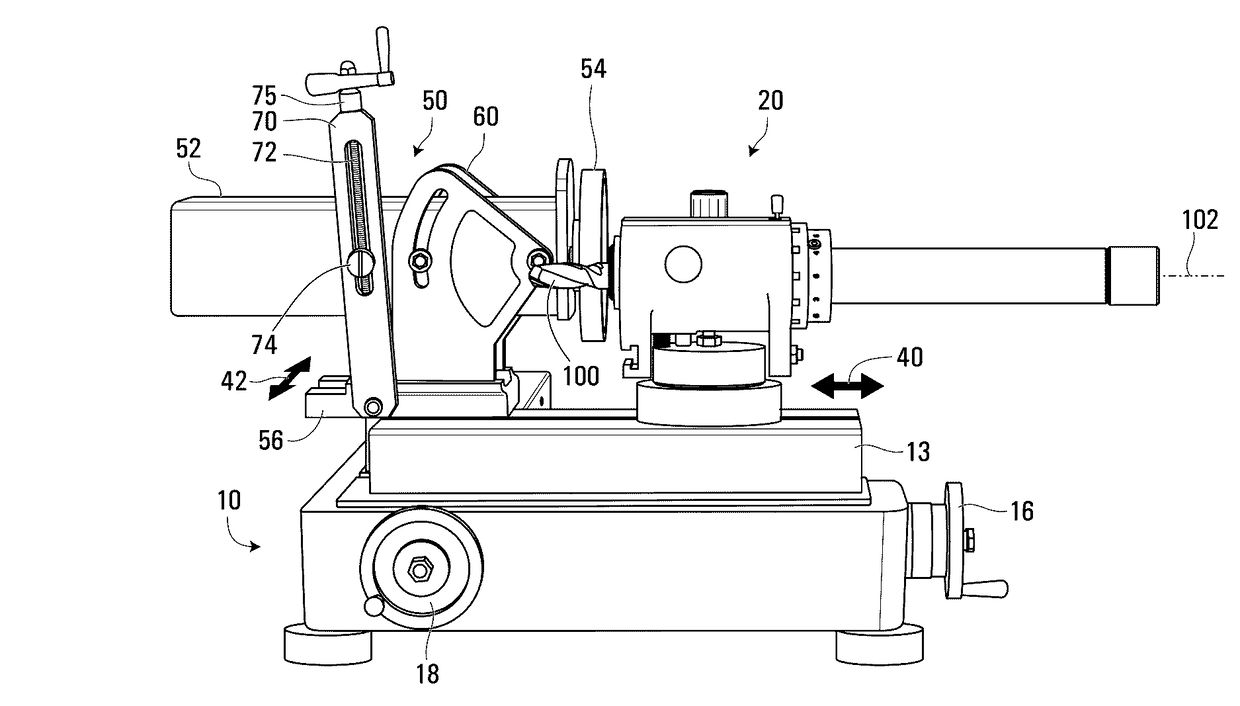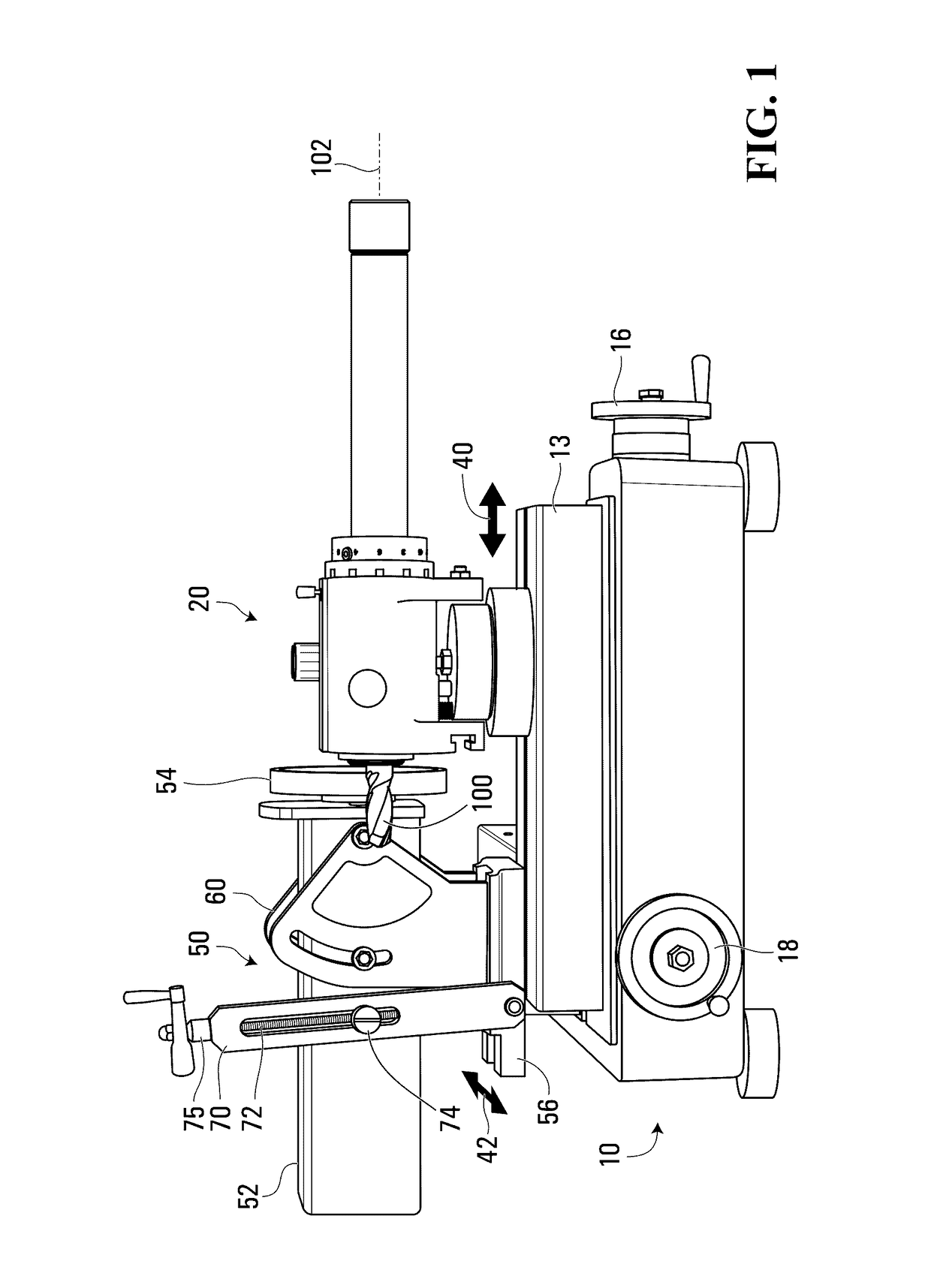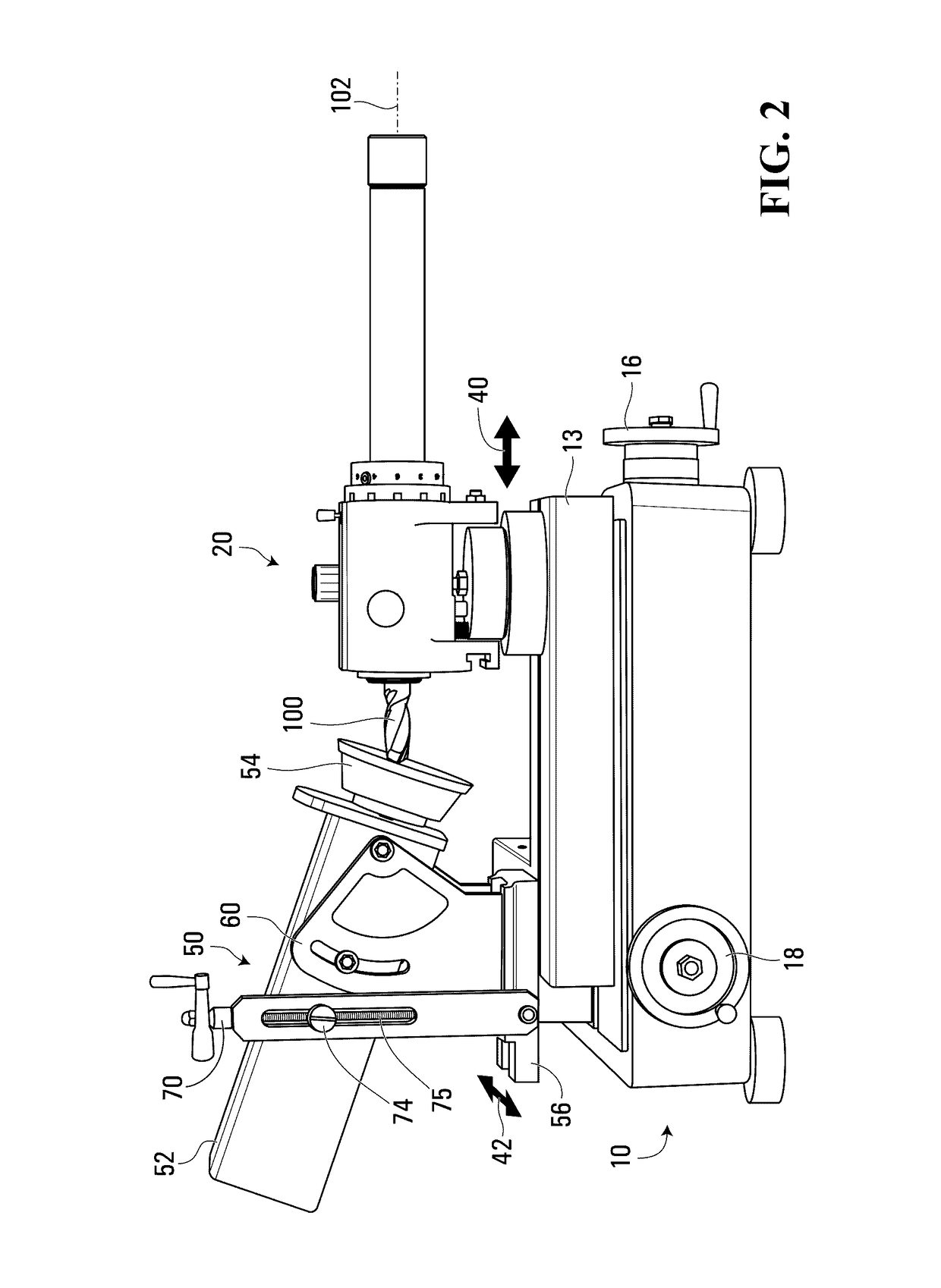Tool grinder
a tool grinder and grinder technology, applied in the field of tool grinders or sharpeners, can solve the problems of more aggressive geometry of contemporary tools, more difficult reconditioning, and more expensive than regular high-speed steel cutters, and achieve the effect of easy reproduction of tool geometry
- Summary
- Abstract
- Description
- Claims
- Application Information
AI Technical Summary
Benefits of technology
Problems solved by technology
Method used
Image
Examples
Embodiment Construction
[0030]An exemplary device in accordance with the invention for the grinding or sharpening a tool, for example a rotating cutting tool, is illustrated in the attached drawings and the principle construction of an exemplary embodiment of the device will be discussed in the following with reference to FIGS. 1 to 9. The exemplary embodiment described is an end mill cutter sharpening device.
[0031]The end-mill (or any other kind of rotating cutting tool) sharpening device in accordance with the present invention, has improved face grinding capabilities as compared to conventional grinding tools, provides a better opportunity for elaborate feature reproduction and includes a very stable sharpening wheel mounting for the achievement of improved surface finishes.
[0032]As is apparent from FIGS. 1 to 3, the principle parts of the device of the invention include a main base 10, preferably a ground stone base for rigidity and harmonic stability, a multi-axis tool spindle assembly 20 and a multi-...
PUM
| Property | Measurement | Unit |
|---|---|---|
| angles | aaaaa | aaaaa |
| angle | aaaaa | aaaaa |
| rotation | aaaaa | aaaaa |
Abstract
Description
Claims
Application Information
 Login to View More
Login to View More - R&D
- Intellectual Property
- Life Sciences
- Materials
- Tech Scout
- Unparalleled Data Quality
- Higher Quality Content
- 60% Fewer Hallucinations
Browse by: Latest US Patents, China's latest patents, Technical Efficacy Thesaurus, Application Domain, Technology Topic, Popular Technical Reports.
© 2025 PatSnap. All rights reserved.Legal|Privacy policy|Modern Slavery Act Transparency Statement|Sitemap|About US| Contact US: help@patsnap.com



